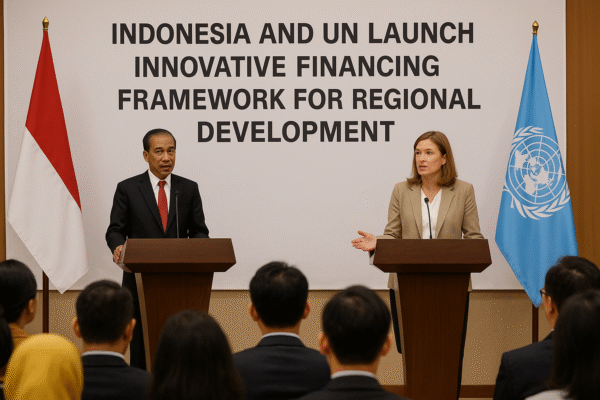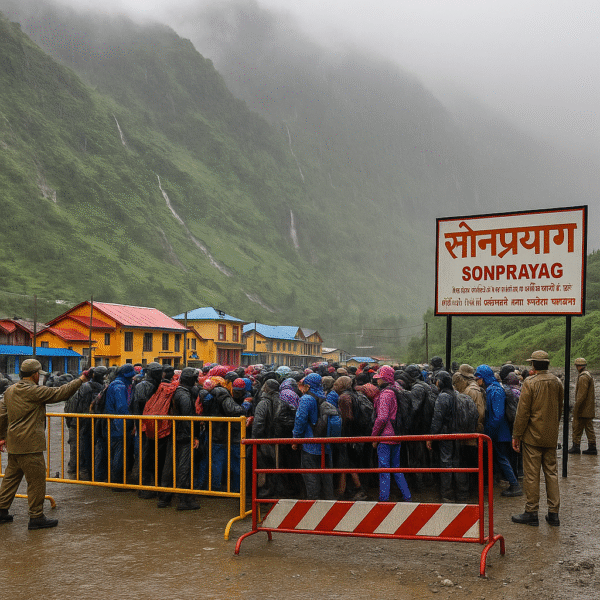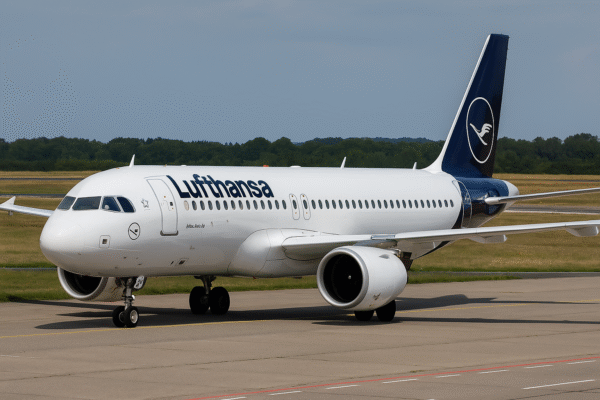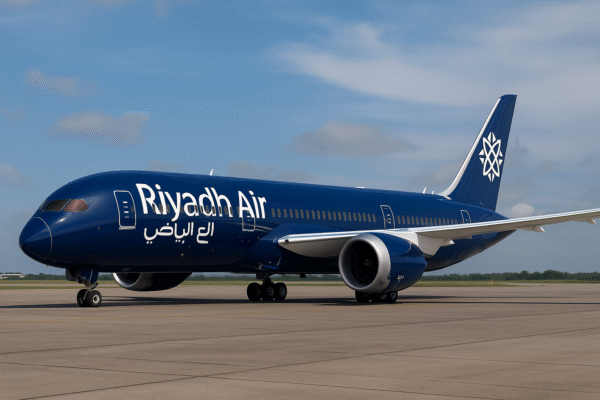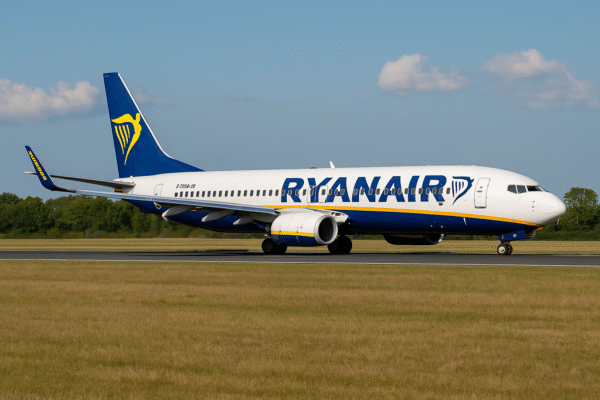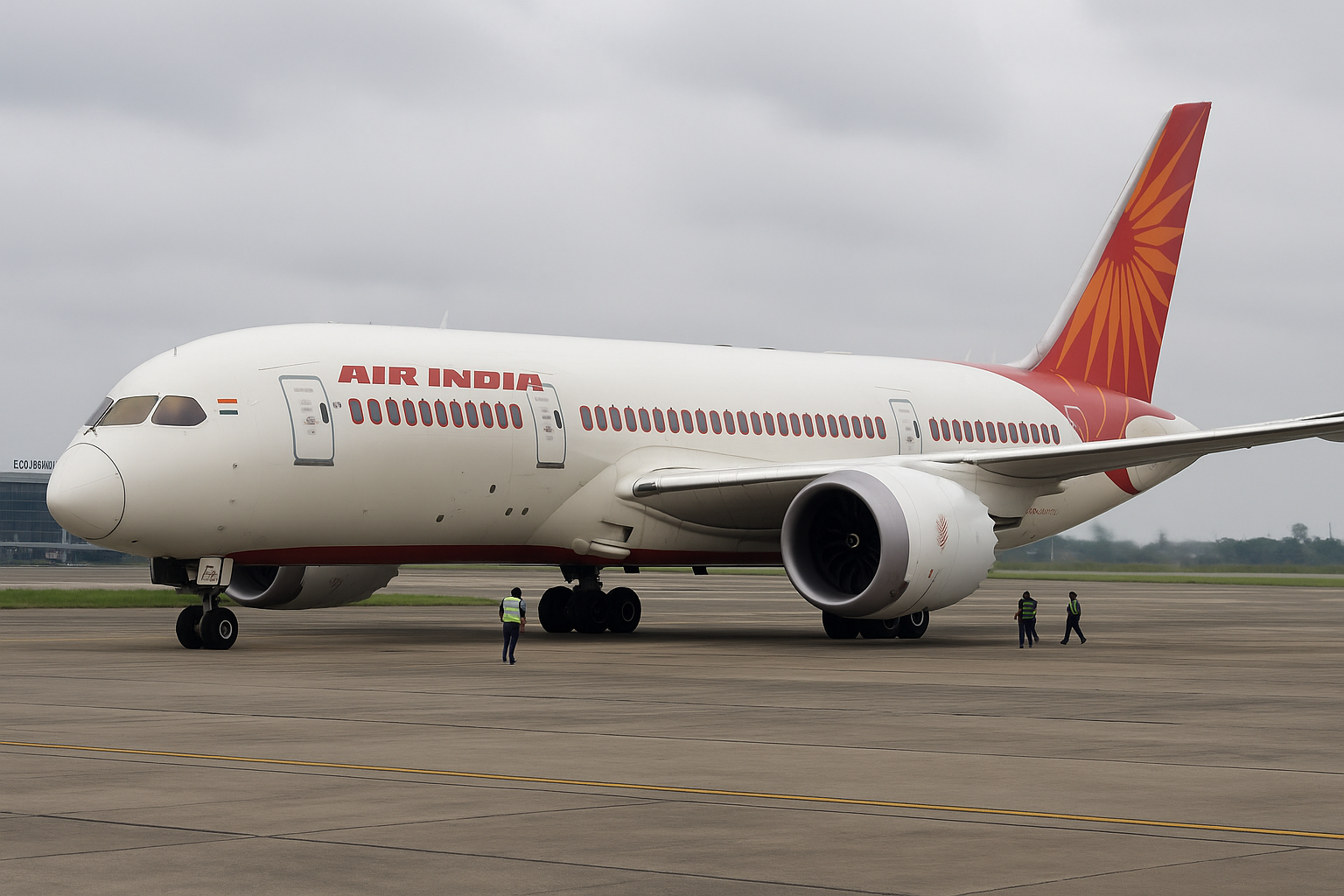Air India Diverts Tokyo–Delhi Flight to Kolkata After Cabin Temperature Malfunction, Ensures Passenger Safety
Kolkata, India – June 30, 2025 —
In a renewed display of its commitment to passenger safety, Air India successfully diverted flight AI357 from Tokyo to Delhi to Kolkata on Sunday, June 29, after a persistent cabin temperature malfunction was detected mid-air. The flight, operated by a Boeing 787 Dreamliner, was rerouted to Netaji Subhas Chandra Bose International Airport in Kolkata as a precautionary measure to safeguard travelers and crew.
The temperature inside the cabin reportedly remained uncomfortably warm throughout the journey, prompting the crew to consult Air India’s operational control and opt for a diversion. Upon landing safely in Kolkata, all 230 passengers were disembarked without incident. The airline swiftly initiated technical diagnostics and maintenance checks to address the issue.
In an official statement, an Air India spokesperson said, “Flight AI357 was diverted as a proactive measure in response to an ongoing temperature issue that could not be resolved mid-air. Passenger safety remains our top priority. Our ground team in Kolkata is assisting all passengers and arranging alternative travel to Delhi.”
While such in-flight diversions due to cabin environmental control failures are rare, they underscore the importance of real-time decision-making and operational transparency. Passengers were offered refreshments and temporary accommodation as ground crews worked to restore the aircraft’s operability or provide rebooking options.
Second Disruption in 24 Hours Adds to Operational Strain
This mid-air issue follows a series of technical irregularities that have placed India’s flag carrier under public and regulatory scrutiny. Just a day prior, on June 28, another Air India flight en route to Chennai was forced to return to Mumbai after passengers and crew reported a strong burning odor in the cabin. That aircraft, too, was grounded for a thorough inspection before it was cleared for resumption.
Furthermore, on June 27, an unusual delay occurred on a Mumbai–Bangkok flight when a routine maintenance inspection discovered hay lodged in one of the wings—resulting in a five-hour delay. The accumulation of such disruptions has fueled public concern, especially following the tragic June 12 crash in Ahmedabad that claimed the lives of 270 passengers and crew aboard a Boeing 787-8.
Ahmedabad Crash Investigation and Industry Oversight
The Ahmedabad disaster has intensified calls for enhanced oversight of Air India’s operations. The Aircraft Accident Investigation Bureau (AAIB) is actively probing the incident. Investigators are examining flight data recorders and cockpit voice recordings at the newly established Civil Aviation Safety Laboratory in Delhi. Preliminary reports suggest no foul play, but sabotage has not yet been ruled out.
Authorities have emphasized that the crash may not be linked to the recent string of technical issues. Still, the convergence of events has created a perception of operational instability at the national carrier. Aviation Minister Jyotiraditya Scindia addressed the media last week, stating, “We are committed to ensuring Air India meets the highest international safety and service standards. We await the AAIB’s final report to determine actionable steps.”
Passenger Response and Airline’s Recovery Strategy
Passengers affected by the recent disruptions have voiced concerns over transparency, delayed responses, and lack of communication during flight irregularities. Several have taken to social media to express frustration, while some praised the professionalism of cabin crews in ensuring calm during emergencies.
In response, Air India has announced an internal audit of its technical maintenance protocols and in-flight support systems. The airline is also said to be accelerating its planned digital transformation initiatives aimed at predictive aircraft maintenance and improved passenger communication systems.
Air India CEO Campbell Wilson recently shared in a press briefing, “While we regret the inconvenience caused to our valued customers, we are doubling down on our safety systems and operational preparedness. These disruptions, though unfortunate, are being used as learning moments to further elevate our performance.”
Future Outlook: Restoring Trust and Stability
Despite ongoing challenges, Air India remains an essential link in India’s global aviation network, with high-frequency routes connecting major international hubs to Indian cities. The airline’s commitment to fleet modernization—supported by the Tata Group—continues with orders for next-generation aircraft and investments in improved training and operational protocols.
With the monsoon season approaching and passenger loads increasing during July Fourth and summer holiday travel, reliability will be paramount. The Directorate General of Civil Aviation (DGCA) has urged all Indian carriers to increase oversight on aircraft airworthiness during this high-demand period.
As investigations into the Ahmedabad crash and other incidents continue, Air India will be under increased observation—not only from government bodies but also from a traveling public that demands transparency, safety, and reliability.
For more travel news like this, keep reading Global Travel Wire





